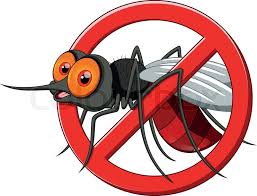
Insect Bite Prevention

Nothing can ruin a fishing trip quicker than biting insects. Bug bites can cause a number of health problems from itchiness and irritation to potentially serious diseases. Therefore, learning how you can reduce your risk of infection and disease caused by bites, both at home and abroad should be an important part of any pre-trip planning.
Tips for Preventing and Reducing Bites:
- Cover up,
- Wear light-coloured, loose clothes made of tightly woven materials such as nylon or polyester,
- Wear long pants and tucked-in long-sleeved shirts with closed-toe shoes or boots and a hat,
- Tape the cuffs of your pants or tuck them inside your socks or shoes. This will provide extra protection against crawling insects such as ticks,
- Adults can wear permethrin-treated clothing, which works to repel mosquitoes.
- Use insect repellent (bug spray) on exposed skin.
Personal insect repellents can help protect you from mosquito, blackfly and tick bites, but it's important to remember that they should be used only as directed.
All insect repellents, whether they are sprays, lotions or wearable devices, must be approved by your countries Health agency for safety and effectiveness. This includes natural insect repellents like citronella or other essential oils. Using approved products according to label directions ensures that they are used safely and effectively.
- Do not spray repellant directly on your face,
- Do not apply to cuts, scrapes or irritated skin,
- Wash your hands after application and avoid contact with lips and eyes,
- Always read and follow product label direction to find out when to re-apply, and whether the product is approved for children, and
- Apply sunscreen before applying insect repellent.
- Make sure indoor areas, especially sleeping areas, are completely enclosed or well-screened,
- Fix or replace old and torn screens in doors, windows and vents. Look for any other possible openings where insects can get in,
- Keep a fly swatter handy to kill insects as needed, when indoors,
- Use mosquito netting when sleeping outdoors or in a building that is not fully enclosed,
- Shower, change and wash clothing and gear after fishing to remove insect repellent residue, and
- Check family members and fishing partners, pets and clothing for crawling insects (ticks) after a day on the water.
- Visit a health care provider or travel health clinic preferably at least six weeks before you travel. They may recommend vaccines or medications for further protection against diseases and illnesses spread by insects. This depends on your destination and planned activities (i.e. staying in a resort hotel versus camping on a beach),
- Learn what types of insects are present where you are travelling, when they are most active and the symptoms of the diseases they spread, and
- When travelling to areas where infected insects may be present, apply insect repellents as directed on the label.
- Use mosquito netting (bug net), tucked under the mattress,
- make sure screens and nets are intact (no rips or holes), and
- Avoid touching the screen or mosquito netting (you could be bitten through the net).



